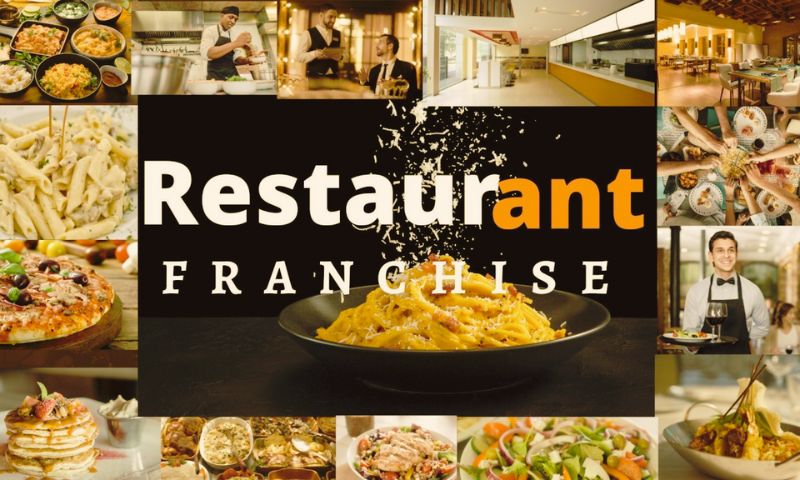Franchise Restaurants: Are They Risky or Profitable?

Restaurants have become a major part of the global food industry. But not all restaurants are owned or operate the same way. The two most commonly heard models include:
- Franchise Restaurant
- Chain Restaurant
While the appear similar on the outside, there is a big difference in the way each is owned and operates.
Franchise Restaurant: What does it mean exactly?
Franchise restaurant is a locally owned business here a person (the franchisees) purchases the name, business model and branding of a larger company (the franchisor) in return the person pays a fee (royalty) and receive a share in sales. In simpler words, the restaurant is owned locally but benefits from corporate support and recognition. Famous franchise restaurants include McDonald’s, KFC, Subway etc. Franchise owners gain 3 big advantages namely:
- The strength of an established brand
- Proven operational systems which reduces trial and error and
- Instant customer’s trust
How Do Chain Restaurants Differ?
Chain restaurants, on the other hand, are different. They are fully controlled and operated by the corporation. This means that all the outlets are owned by the parent company, therefore, all the profits are returned to the parent company. Also, the local managers of chain restaurants are not individual investors, rather they are the employees of the corporation.
Why People Choose Franchise Restaurants?
Why do people prefer or lean towards Franchise Restaurants? The answer: one of the many attractions of investing in a franchise is the lower level of risk involved from the one that goes into starting from scratch or setting up an independent restaurant on your own. Buying a franchise does not mean walking into something unknown or unfamiliar territory…..it is a proven and established system that works! The perks include:
- Brand Recognition – You do not have to convince people to try your food and thus spend years on building trust. The brand name already exists and customers are already familiar with it, meaning they are more likely to walk in one day themselves.
- Proven Business Model – You do not have to have to figure out everything by yourself. The training, operational guidelines, and marketing strategies are provided by the franchisor.
- Supply Chain Support – Franchisees gain access to the same established suppliers. This reduces costs and ensures consistency.
- Marketing Power – Whether it is a National Television ad or regional advertising campaigns, the brands marketing strategies lift all franchise locations, giving local outlets visibility without costing you the entire bill.
It is advantages such as these that make franchises appear more stable and a safer bet as compared to starting independent restaurants where every major decision from branding to sourcing is your sole responsibility and falls squarely on your shoulders .
Also Read This:
How to Earn Money Online Using TikTok
8 Popular Online / Remote Jobs You Can Start Today
Exploring Farm Jobs in Canada: Work which is Meaningful with Opportunities and Purpose
The Profitability Factor
Profitability is not a guarantee. While a franchise restaurant most assuredly will make money, but how much you can earn will depend on a mix of several factors such as the brand’s pull, the location you choose and your ability (how well you can manage the day to day operations).
- Location Matters: If you choose a spot in a busy shopping district or a place which closer to schools and offices, this will bring in a steady flow of customers leading to significant sales, while a quieter location and a less favourable spot may struggle and you may face problem s in keeping tables full.
- Franchise Fees & Royalties: Franchise owners must pay upfront costs, ongoing royalties, and sometimes advertising fees. These expenses cause profit margins to shrink.
- Operational Efficiency: At the end of the day good management counts. Success will come if you are able to hire and train staff, keep costs under control and maintain quality. All these things make a big difference in profitability.
- Brand Popularity: Popular brands perform well and bring in customers, however, sales can drop rapidly if a brand looses relevance. A bad reputation will cause loses no matter how well you manage your outlet.

Risks Involved
Despite their benefits, franchise restaurants are not risk-free. Common risks include:
- High Start-up Costs – Initial franchise fees, equipment, and real estate can require large amounts of capital.
- Lack of Independence – There is little to no room for creativity. Franchisees have to follow strict rules set by the franchisor.
- Market Saturation – Too many outlets in the same area can hurt everyone’s profits.
- Changing Trends – A shift in customer preferences can lead to a once-popular brand losing relevance. In other words, changing consumer tastes can make a popular brand outdated in a hurry.
- Economic Downturns – Franchises are vulnerable in tough economic times. (inflation, changing local economies)
Franchise vs. Individual Start-up: A Comparison
This table highlights why many entrepreneurs lean toward franchises for stability, while others prefer independent start-ups for freedom and creative potential.
| Factor | Franchise Restaurant | Independent Startup |
|---|---|---|
| Brand Recognition | Immediate – customers already trust the name | Must be built from scratch |
| Business Model | Proven system with training & guidelines | Trial-and-error, requires innovation |
| Initial Costs | High (franchise fees, royalties, setup costs) | Variable, but can be lower if starting small |
| Creative Control | Limited – must follow franchisor rules | Full control over menu, branding, and strategy |
| Marketing Support | National/regional campaigns provided | Owner must handle all marketing independently |
| Risk Level | Lower due to brand reputation and systems | Higher because of market uncertainty |
| Profit Potential | Steady but limited by fees/royalties | High potential if successful, but riskier |
| Long-Term Growth | Dependent on franchisor’s rules and expansion strategy | Unlimited, based on owner’s vision |
Final Thoughts
So are Franchises Risky or profitable? The answer to this that they are bit of both. While entrepreneurs do get a head start with brand recognition and proven business models, they still need a huge amount of capital and must follow strict rules set forth by the franchisor. Franchises can be truly profitable but only for the disciplined owners, for those wanting freedom and creativity it would be better to set up an independent restaurant even if the risk involved is high.
